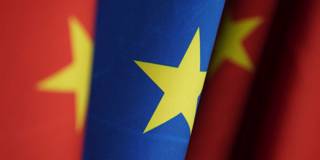 Sean Gallup/Getty Images
Sean Gallup/Getty Images
一份过时的欧中协定
发自华盛顿特区—欧盟和中国在上个月底公布了双方于去年12月达成的《全面投资协定》的一些新细节。从纸面上看欧盟谈判代表确实在市场准入、投资自由化和可持续发展等重要领域取得了一些进展,但试问像《全面投资协定》这样的增补式双边协议真的能够掌控与当今中国的经济关系吗?
https://prosyn.org/IO2OeBMzh
To continue reading, register now. It’s free!
Register Now
Already have an account?
Log in



发自华盛顿特区—欧盟和中国在上个月底公布了双方于去年12月达成的《全面投资协定》的一些新细节。从纸面上看欧盟谈判代表确实在市场准入、投资自由化和可持续发展等重要领域取得了一些进展,但试问像《全面投资协定》这样的增补式双边协议真的能够掌控与当今中国的经济关系吗?